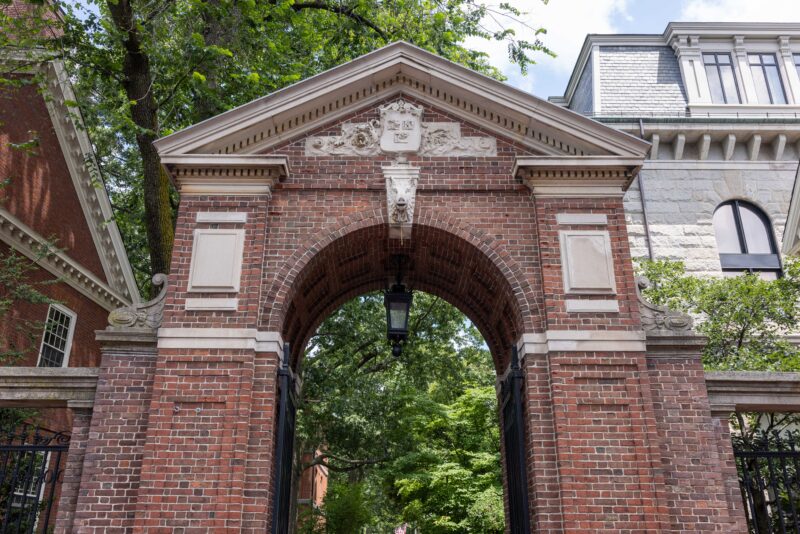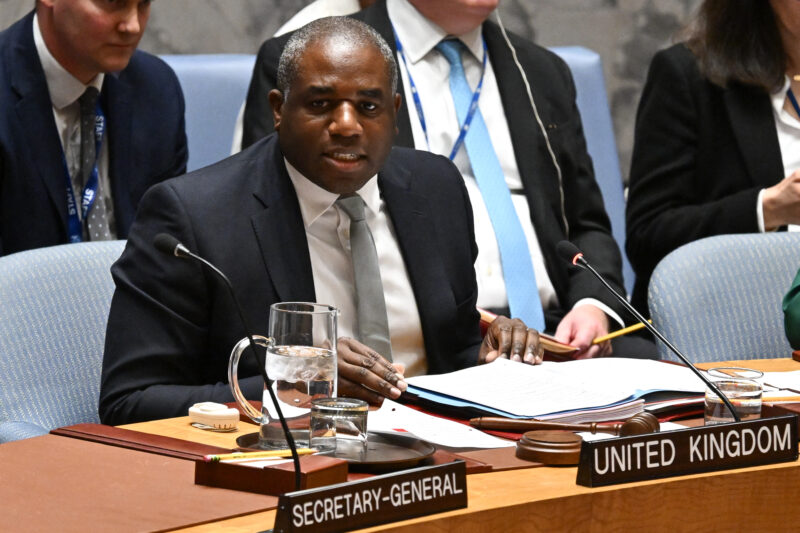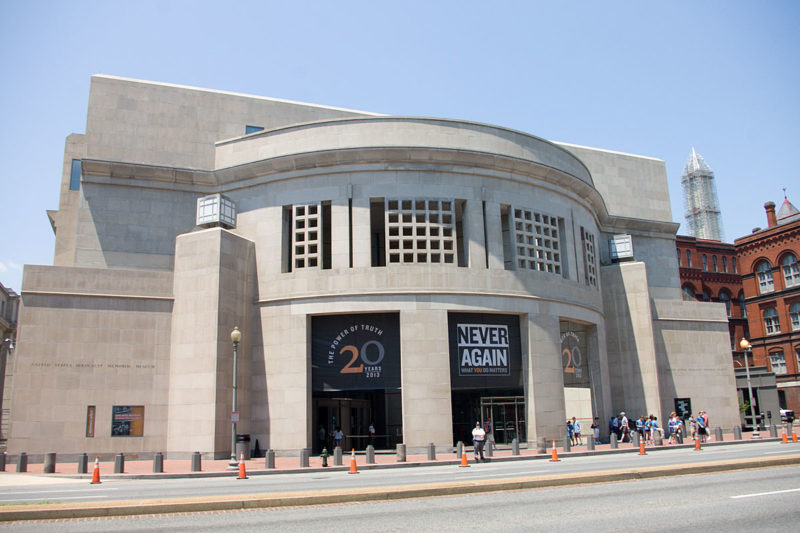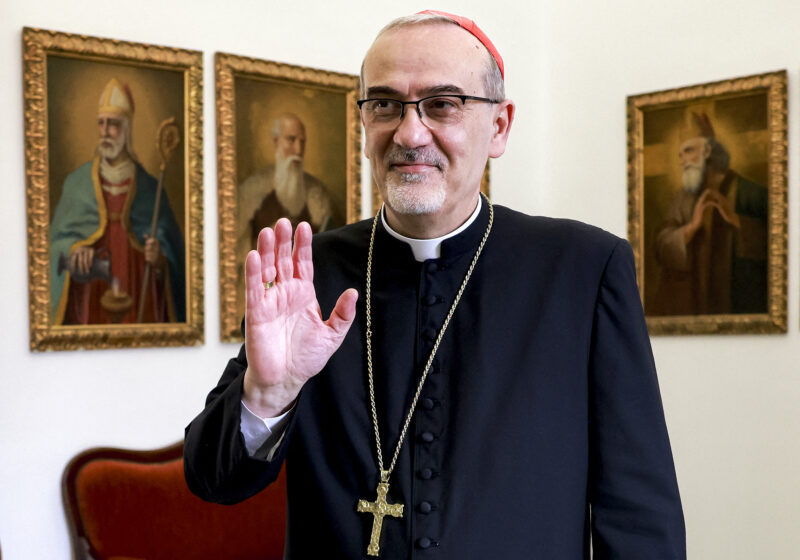Over 150 Israeli students at Harvard will be impacted by the move; they must transfer schools or lose their visas

Scott Eisen/Getty Images
An entrance gate on Harvard Yard at the Harvard University campus on June 29, 2023 in Cambridge, Massachusetts.
The Trump administration on Thursday stripped Harvard University of its ability to enroll foreign students, citing Harvard’s collaboration with the Chinese Communist Party, in what the Department of Homeland Security described as an act of accountability for the university “fostering violence, antisemitism and pro-terrorist conduct from students on its campus.”
The move is an escalation in President Donald Trump’s battle with Harvard, just one front in his war with elite higher education institutions. He has already revoked billions of dollars in federal funding from Harvard, as well as several other universities. Trump has also sought the deportation of hundreds of foreign students on college campuses over their alleged support for terrorism and antisemitism.
But this is the first instance of the White House completely cutting off a university’s ability to admit international students. Harvard currently hosts more than 10,000 international students, according to university data. 160 of them are from Israel. Current students must transfer schools or lose their visa.
“It is a privilege, not a right, for universities to enroll foreign students and benefit from their higher tuition payments to help pad their multibillion-dollar endowments. Harvard had plenty of opportunity to do the right thing. It refused,” Homeland Security Secretary Kristi Noem said in a statement.
Last month, Noem asked Harvard to provide data on the disciplinary records of foreign students on campus and their record of participating in protests. Noem said the information shared by Harvard in response was “insufficient.”
Harvard Hillel’s executive director, Rabbi Jason Rubenstein, expressed concern about the impact on Israeli students at Harvard.
“The current, escalating federal assault against Harvard — shuttering apolitical, life-saving research; threatening the university’s tax-exempt status; and revoking all student visas, including those of Israeli students who are proud veterans of the Israel Defense Forces and forceful advocates for Israel on campus — is neither focused nor measured, and stands to substantially harm the very Jewish students and scholars it purports to protect,” Rubenstein told Jewish Insider.
A university spokesperson did not immediately respond to a request for comment.
Barak Sella, an Israeli educator and researcher who earned a master’s degree from the Harvard Kennedy School in 2024, said the action will “be detrimental for the entire higher education system.”
“Never did any Jewish [organization] ask to ban the ability to accept foreign students, especially when a lot of the antisemitism is perpetrated by American citizens — aka the shooting last night,” Sella told JI, referring to the killing of two Israeli Embassy officials outside the Capital Jewish Museum in Washington. The alleged perpetrator is an American citizen.
Harvard is likely to take legal action in response, according to The Crimson.
Jewish Insider reporter Haley Cohen contributed to this report.
More than 150 students and more than 200 faculty and staff signed open letters criticizing the environment on campus and school leaders’ failure to enforce the rules
Ross Lewis/Getty Images
Old Queens building, Rutgers University in New Brunswick, New Jersey.
Ahead of testimony on Capitol Hill on Thursday by Rutgers University President Jonathan Holloway, hundreds of Jewish Rutgers students, faculty, administrators and staff signed onto a pair of letters condemning the school’s handling of antisemitism on campus.
Rutgers’ administration agreed to many of the demands put forward by anti-Israel protesters on campus, but refused to divest from companies linked to Israel or cut ties with Tel Aviv University. Lawmakers, including Gov. Phil Murphy, have condemned the university’s handling of the situation.
The more than 150 students who signed the student-led letter wrote that they “would like to share our experiences of the past academic year in the hope of conveying the hurt, pain, and isolation that many of us have suffered and suggesting ways that the entire university community might do better in the future, not just to support its Jewish students, but to create a more tolerant climate for all its members.”
The students said that anti-Israel demonstrators had “in short… taken over our university,” including by forcing the delay of final exams, taking over building and blocking events.
They said they felt “abandoned” by people they considered friends in the wake of the Oct. 7 attack on Israel, some of whom defended the Hamas massacre and “quickly mobilized in support of terror, conveying to us that we would not be safe and welcome at the university many of us called home.”
The students further accused “many faculty and staff” of having “guided [protesters] in tactics of intimidation and menacing protest,” helped the students negotiate with administrators and in some cases “allowed for and perpetuated antisemitic behavior in their own classrooms.”
They said that they have “no objection” to pro-Palestinian protests, but said that student groups that have actively violated others’ rights to free expression have faced no punishment, and that the university has failed to enforce its own rules.
“Our desire is nothing more than for our university to once again become a place where all peoples are welcome and treated equally, in a tolerant environment where we can all pursue knowledge in a spirit of peace and empathy for others,” the letter continued.
The second letter, signed by more than 200 faculty, staff and administrators, highlights more than a dozen incidents, including celebration of the Oct. 7 attack and the use of university resources to promote anti-Israel propaganda, some of which have gone unpunished.
“The administration’s decision to accede to the demands of the encampment protesters undermines the principles of shared governance, and it elevates the voices of a radical few above those of the more reasonable whole,” they wrote. “It does a disservice not just to Jewish students, faculty, and staff, but to the entire university community.”
They said Rutgers had failed to act proactively to respond to and make clear its rules and policies with regard to demonstrations and, “As a result, the entire university community has suffered through the disruption of normal university operations and an often chaotic and intimidating environment on our campuses.”













































































